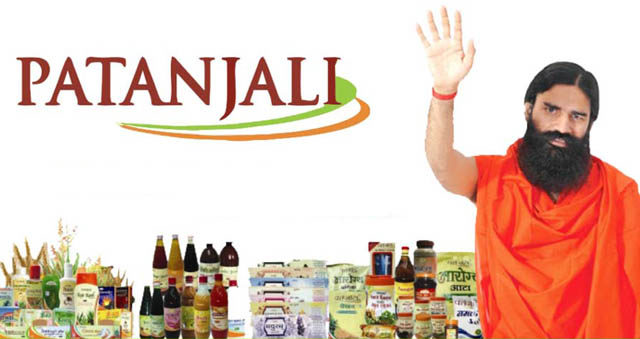Post-liberalisation, the FMCG landscape in India has been dominated by the two giants who dominate the world market – the Netherlands-based Unilever (HUL) and the American Proctor and Gamble (P&G). Apart from these two, Indian brands like Godrej and Dabur have also carved out a decent place for themselves in the market, with smaller competitors like Marico and Emami making up the numbers.
Over the course of the last two years however, a new competitor has entered the market and taken it by storm. This is, of course, Patanjali Ayurveda Ltd., the company founded in 2006 by the Yoga guru Baba Ramdev and Acharya Balkrishna, also a prominent TV personality claiming extensive knowledge of Ayurveda. It is worth mentioning here that Baba Ramdev himself has no financial investment in the company, which is owned by Acharya Balakrishna along with some NRI investors who hold a small stake. Rather, he is more like the brand ambassador for the vast range of products that Patanjali sells.
The company claims revenues of Rs. 5,000 crores for the year ended March 31, 2015, and is targeting double that figure by 2017. With over 10,000 stores, 4,000 distributors and 100 mega-marts, along with a year-on-year growth rate over 100% it seems as though this ambitious target might be achieved sooner rather than later.

So what is is that gives Patanjali the edge over the competition? Let us look at some of the factors that have contributed to its spectacular rise:
1. Pricing : Patanjali undercuts its competition by 15-30% across product categories. It’s shampoos cost less than P&G and Unilever’s offerings, its Noodles are Rs 10 less than Nestle’s Maggi, its cornflakes cost less than Kellogg’s offerings, it’s biscuits cost less than Brittania’s offerings, and so on. In its own ‘ayurvedic’ products category, of course, it tends to cost less than comparable allopathic medical brands as well.
2. Network : The length of time that the bigger brand had to build up a distribution network has been their firewall for a long time; despite the products popularity, it was not until quite recently that Patanjali was able to match the availability of Unilever and P&G. But it has taken the challenge aggressively and is now available both at exclusive and multi-brand FMCG outlets
3. Umbrella brand approach : Another interesting strategy of the company has been to avoid creating sub-brands. So whereas Unilever and P&G focus on building individual brands, Patanjali’s strategy has been to create a mother-brand and market multiple products under its name. Which is not to say that it does not use individual brand ambassadors, such as Olympian Sushil Kumar and actor Hema Malini.
4. Devotion for Baba Ramdev : In a country drunk on hypersensitivity and drowning in religious dogma, it is perhaps appropriate that the most powerful brand ambassador is not a sportsperson or actor, but a religious guru. Baba Ramdev’s followers are legion, firm in their devotion and open to accepting their idol’s recommendations without a second thought.
5. Appeal to patriotism : The real ownership of companies can be so complex that it is difficult for people to realise that Hindustan Unilever and P&G India are more Indian in their ownership than the parent companies that they are associated with. However, the advertising and branding of Patanjali has succeeded in creating the impression that it is the only ‘Indian’ brand in the market and that buying their products is an expression of nationalism much like chanting ‘Bharat Mata ki jai’ or protecting the cow.
From the above, it is clear that Patanjali Ayruveda is on a fast growth trajectory. The only possible hiccups it might face are from expanding into too many categories too quickly, and reputation damage that may be caused if they get into any trouble with the Food and Drug Administration. But failing that, there is no doubt that this brainchild of two religious gurus with no prior experience in running a business, let alone one as competitive as FMCG, have shown tremendous resilience and acumen to grow to where they are today.































